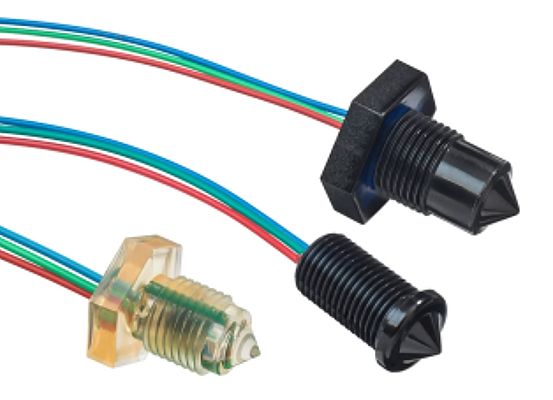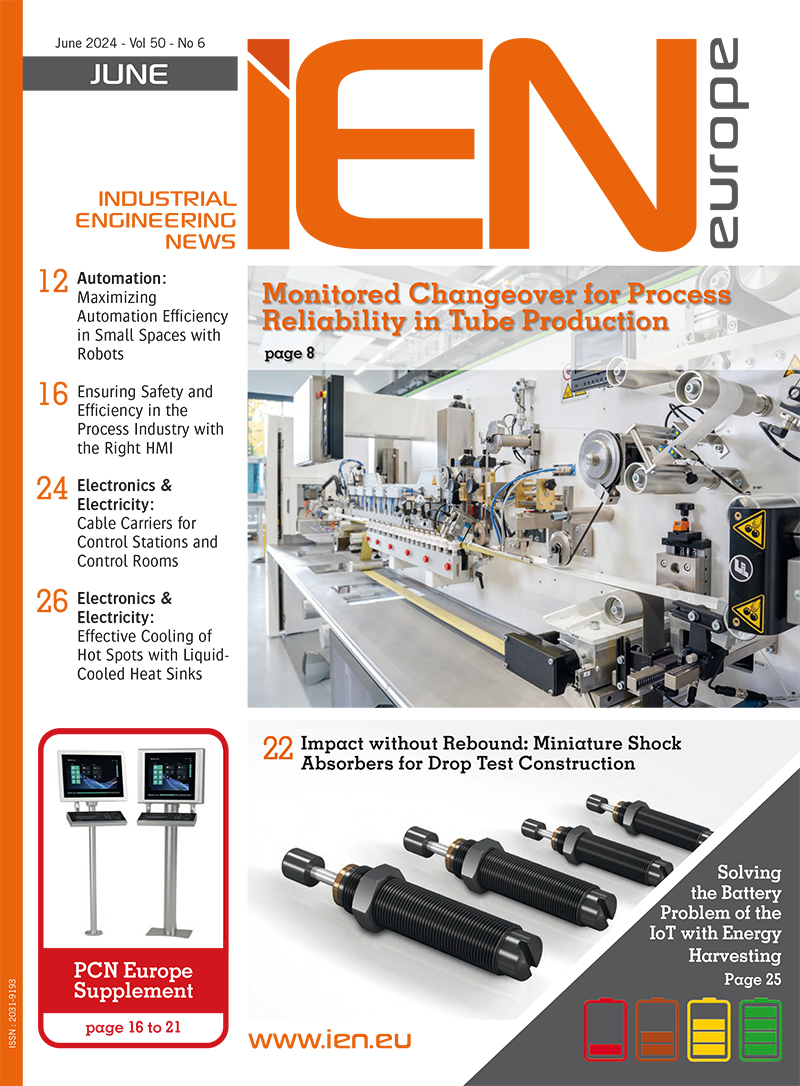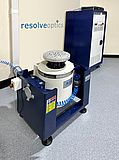SST Sensing has developed the Optomax Digital series of liquid level switches. The devices are cost-effective and simple-to-use with the capacity to detect almost any liquid type (whether it is oil or water based). Each unit incorporates an infra-red (IR) LED emitter, a phototransistor and a microcontroller within a streamlined housing well suited to space constrained settings.
Maintenance-free design
As they rely on solid state electronics, rather than the conventional mechanical technology of float switches, the members of the Optomax series are not prone to jamming or wear and tear - resulting in long, maintenance-free operational lifespans. Furthermore, unlike other optically based devices on the market, the performance of these liquid level switches is not affected by ambient light. This is due to the advanced optical design employed, as well as SST Sensing’s propriety signal conditioning algorithms. Furthermore, they are not affected by the presence of a foam layer on top of the liquid, so superior accuracy levels are assured.
Several housing materials for versatile applications
There are a multitude of application possibilities for the series. Among these are fuel/industrial chemical tanks, hydraulic systems in heavy machinery, transportation, etc. To broaden their scope still further, these devices are supplied in a choice of rugged, chemically-resistant materials that can deal with the harshest of fluid media. The standard Polysulfone housing is complemented by a Trogamid® option (which is suited to use in the food/beverage sector and has full European standards approval). The switches can be externally or internally mounted, with an array of different fittings offered (M10, M12, 1/2-inch SAE, 1/4-inch NPT). Driven by a 4.5V to 15.4V DC supply, these low power devices draw a maximum current of 2.5mA. The sensors are available with high or low in air outputs as well as a PWM option for maximum reliability and fail-safe operation. They are capable of supporting pressures of up to 20bar and offer an operational temperature range of -25°C to +80°C (with extended range versions covering -40°C to +125°C).

















